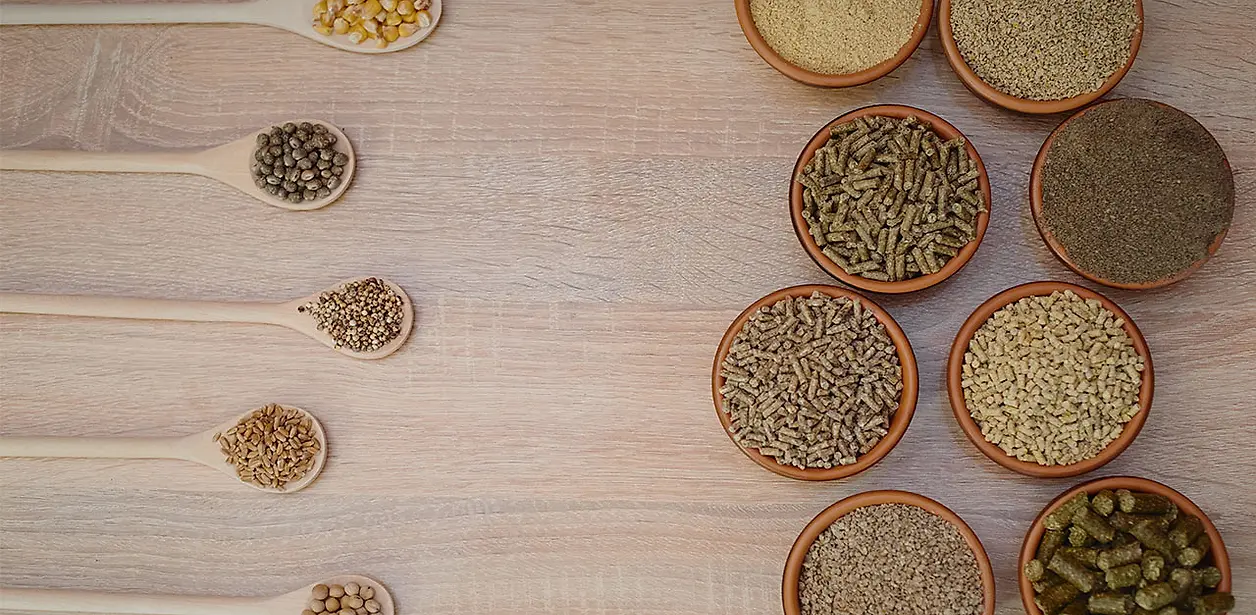ISO 147974 Ash Content Testing in Swine Diets
The ISO 147974 standard is a crucial tool for quality assurance in the formulation of swine diets. This method ensures that feed ingredients and formulated feeds meet the required nutrient content, which directly impacts animal health, growth, and productivity. Ash content testing is particularly important because it helps identify the non-nutritive elements present in the diet, such as minerals and other impurities.
The process involves heating a sample to a high temperature (typically 550°C) under controlled conditions until all organic matter decomposes, leaving behind only inorganic compounds. The resulting ash content is then measured accurately using precise analytical balances. This test not only provides insights into the mineral composition of the feed but also helps in assessing potential contaminants that could adversely affect animal health.
For swine diets specifically, understanding and controlling ash content is essential for formulating balanced rations. High levels of ash can indicate excessive use of low-quality ingredients or poor processing methods, which may lead to suboptimal nutrient utilization by the animals. Conversely, excessively low ash content might suggest insufficient mineral supplementation, potentially leading to deficiencies.
The ISO 147974 standard ensures that feed manufacturers adhere to strict quality control protocols, ensuring consistency and reliability across batches of feed. This is critical for maintaining consistent performance in pig farms, where variability can have significant economic implications. By adhering to this standard, companies not only enhance their reputation but also contribute positively to animal welfare.
The testing process itself involves several key steps:
- Sample preparation: Representative samples are taken from the feed batch and ground to a fine powder for accurate measurement.
- Heating: The sample is subjected to controlled heating at 550°C until only inorganic compounds remain.
- Weighing: The resulting ash is meticulously weighed using high-precision scales.
The results from this test are used by quality managers and compliance officers to make informed decisions about ingredient sourcing and formulation adjustments. R&D engineers use these data points to optimize feed formulations, while procurement teams rely on the findings to ensure suppliers meet stringent quality standards.
Scope and Methodology
| Sample Preparation | Heating Conditions | Weighing and Calculation |
|---|---|---|
| Representative samples are taken and ground to a fine powder. | Heated at 550°C until only inorganic compounds remain. | The resulting ash is weighed using high-precision scales. |
The ISO 147974 standard specifies the exact conditions under which testing must be conducted, ensuring consistency and reliability across different laboratories. This method provides a standardized approach to determining ash content in swine diets, making it easier for stakeholders to compare results.
Compliance with this standard is essential for maintaining high-quality feed products that meet nutritional requirements while minimizing risks associated with excess or insufficient mineral content. The precision and accuracy of the test results are critical for ensuring consistent performance across all batches produced by a facility.
Quality and Reliability Assurance
- Use of high-precision scales to ensure accurate weighing of the ash content.
- Controlled heating environment to minimize variability in results.
- Regular calibration of equipment to maintain accuracy over time.
The ISO 147974 standard emphasizes the importance of quality assurance measures throughout the testing process. By adhering strictly to these protocols, laboratories can provide reliable and accurate ash content data that are crucial for maintaining consistent feed quality.
Quality managers rely on this information to ensure that all batches meet specified nutritional requirements, thereby minimizing risks associated with suboptimal feeds. Compliance officers use the results to verify adherence to regulatory standards, ensuring that products comply with local and international regulations.
Environmental and Sustainability Contributions
- Precise measurement of ash content reduces waste by optimizing ingredient usage.
- Avoidance of over-supplementation with minerals, which can lead to environmental pollution.
The ISO 147974 standard contributes significantly to environmental sustainability by promoting efficient use of resources. By accurately measuring ash content, feed manufacturers can reduce waste and minimize the environmental impact associated with excess mineral supplementation.
Moreover, adhering to this standard helps prevent over-supplementation of minerals, which can lead to runoff into water bodies and subsequent environmental pollution. This not only benefits animal health but also supports broader sustainability goals within the industry.





